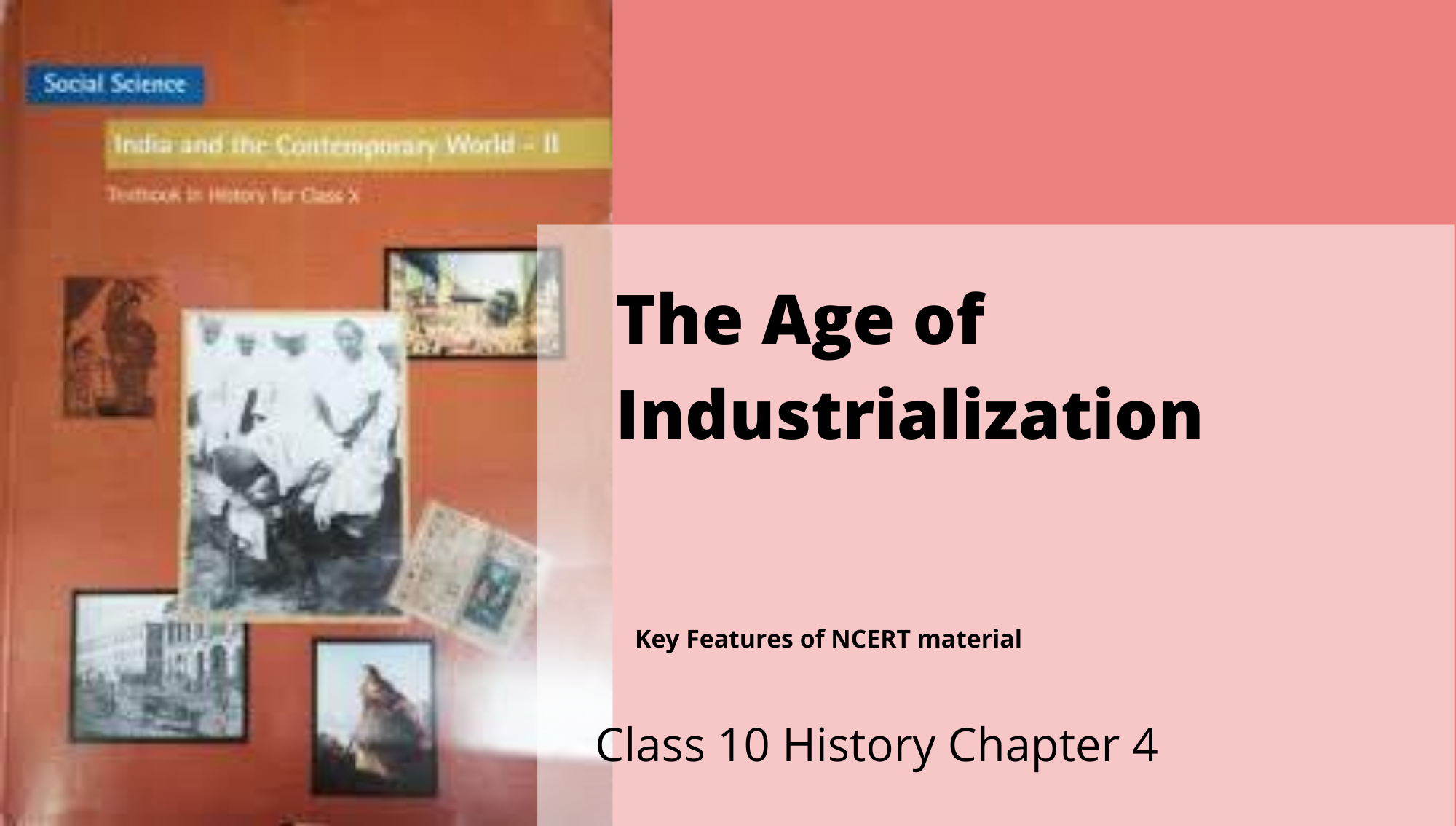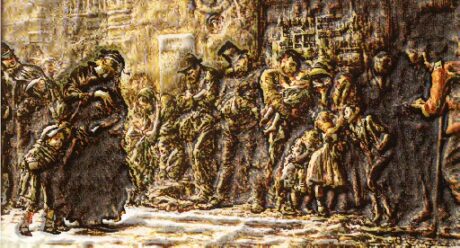The Age of Industrialization: Class 10 History NCERT Chapter 4

Key Features of NCERT Material for Class 10 History Chapter 4 – The Age of Industrialization
In the last chapter 3, you learned about Tha making of a global world.
In Chapter 4 of CBSE Class 10, History understudies will become familiar with the history of Britain, the main industrial country, and afterward India, where the example of industrial change was molded by pioneer rule. The chapter starts with clarifying the situation before the Industrial Revolution and how it changed after some time as far as work, setting up of production lines, and so on. A portion of different themes clarified in the chapter are Industrialisation in the settlements, industrial development, market for goods, workers life, and so on. In this article, we have aggregated CBSE Class 10 History notes of Chapter 4 – The Age of Industrialisation. All the basic ideas are canvassed in these notes, as examined in the chapter.
Quick Revision notes:
Earlier the industrialisation revolution, industrial production implied plant production and industrial production laborer implied assembly line laborers. This stage is known as proto-industrialisation.
Defensive Tariff – To stop the import of specific goods and to secure the local goods a tax was forced. This tax was forced so as to spare the local goods from the opposition of imported goods and furthermore to spare the enthusiasm of nearby makers.
Life of the Workers

– After the bustling season was finished, workers searched for even random temp jobs.
– The wages expanded fairly in the nineteenth century.
– The pay of workers subordinate not on the pay rate alone, it additionally relied upon various days of their work.
– Fear of joblessness made workers antagonistic to the new presentation of new innovation and afterward presented woolen industry.
Laissez, Faire – According to the financial specialists, for the quick exchange a policy of Laissez Faire ought to be applied whereby government should neither meddle in exchange nor in the industrial production. This policy was presented by a British financial specialist named Adam Smith.

A policy of Protection – The policy to be applied so as to shield the recently shaped industry from hardened rivalry.
Magnificent inclination – During the British time frame, the goods imported from Britain to India be given exceptional rights and offices.
Office of Commerce – Chamber of Commerce was built up in the nineteenth century so as to take aggregate choices on certain significant issues concerning exchange and business. Its first office was set up in Madras.
Patriot Message – Indian producers publicized the patriot message plainly. They stated, on the off chance that you care for the country, at that point purchase items that Indians produce. Promotion turned into a vehicle of a patriot message of Swadesh.
End
The time of businesses has implied major mechanical change, development of processing plants and creation of the new industrial work power.
Little scope industry production and hand innovation likewise assumed a key job in Industrial revolution.
(The Age of Industrialization: Class 10)

